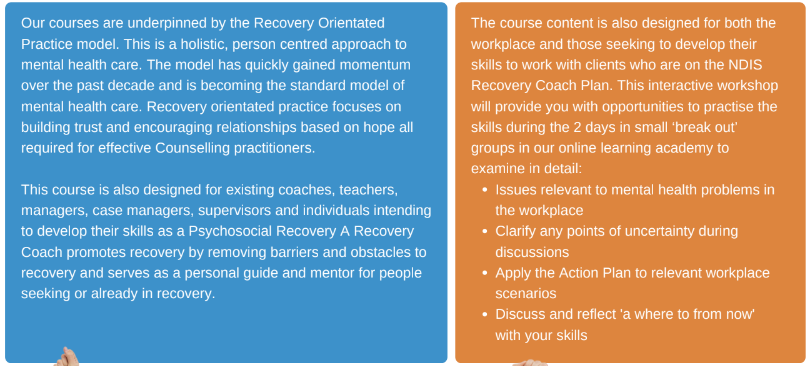There is a strong demand for people with lived experience or a mental health background to be qualified in the principles and
practices of recovery-oriented counselling. This is to ensure that NDIS mental health services are delivered in a way that
supports the recovery of mental health consumers.
The principles of recovery-oriented mental health practices are to develop:
- An understanding individual’s uniqueness
- Real choices for consumers
- An understanding of attitudes and rights
- Partnership and communication in the recovery process
- Build support, evaluate and adjust the recovery of the consume

- The purpose of Recovery Coaching
- The roles and responsibilities of a Recovery Coach
- The Recovery Model and Process
- Working with a care plan
- List the components, core values and guiding
principles of recovery - Effective Communication Techniques
- Developing a Person-Centred Approach
- Build skills to enhance relationships
- Explore many dimensions of recovery and recovery
coaching - Discover attitudes about self-disclosure and sharing
your story - Understand the stages of recovery
- Describe the stages of change and their applications
- Increase their awareness of culture, power and
privilege - Address ethical and boundaries issues
- Practice newly acquired skills
